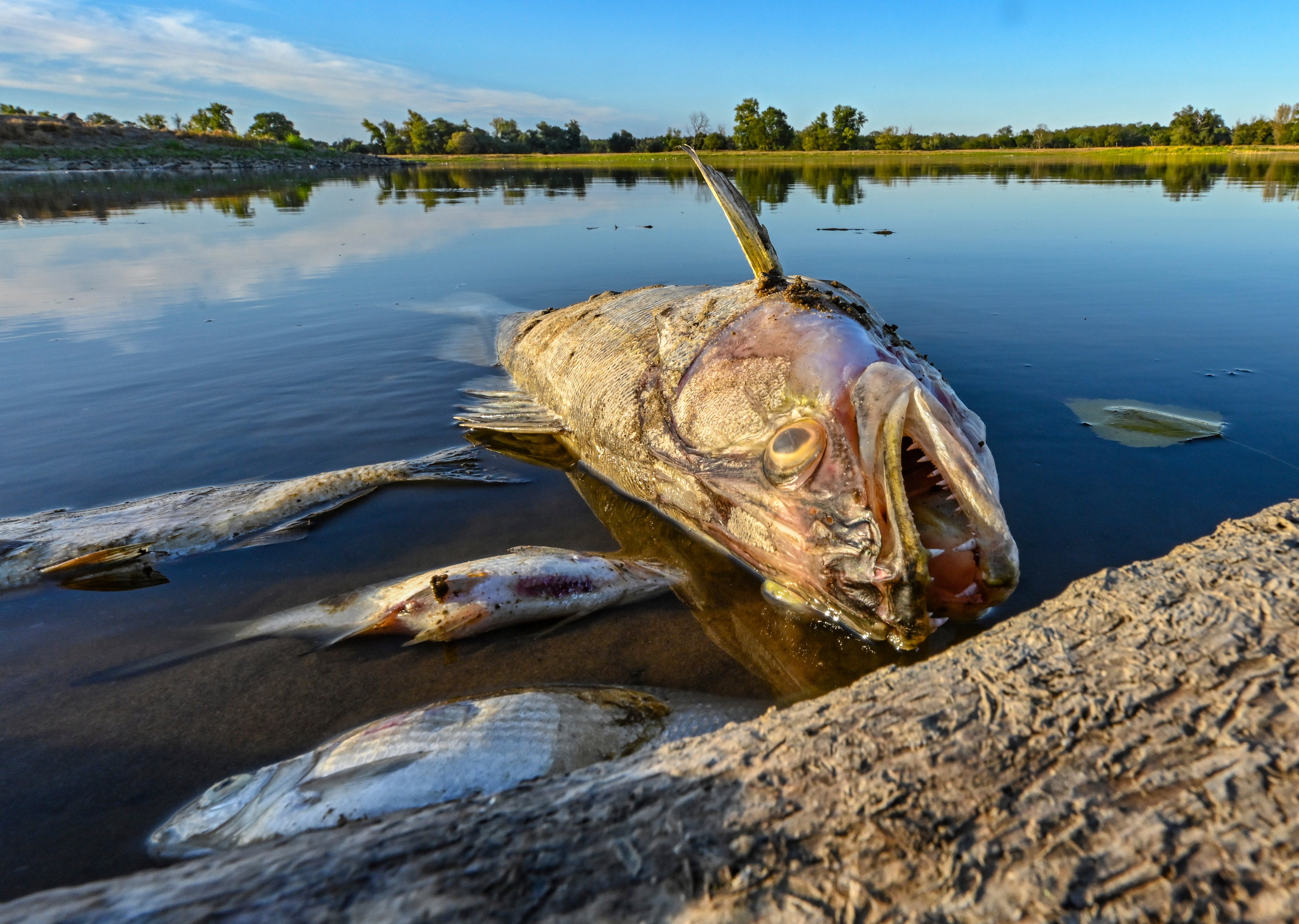Germany: No single cause for massive Oder River fish die-off
Germany says several substances seem to have contributed to a massive fish die-off in the Oder River that forms much of the country’s border with Poland

Your support helps us to tell the story
From reproductive rights to climate change to Big Tech, The Independent is on the ground when the story is developing. Whether it's investigating the financials of Elon Musk's pro-Trump PAC or producing our latest documentary, 'The A Word', which shines a light on the American women fighting for reproductive rights, we know how important it is to parse out the facts from the messaging.
At such a critical moment in US history, we need reporters on the ground. Your donation allows us to keep sending journalists to speak to both sides of the story.
The Independent is trusted by Americans across the entire political spectrum. And unlike many other quality news outlets, we choose not to lock Americans out of our reporting and analysis with paywalls. We believe quality journalism should be available to everyone, paid for by those who can afford it.
Your support makes all the difference.Several substances seem to have contributed to the massive fish die-off in the Oder River that forms much of Germany's border with Poland, a German official said Monday.
A spokesman for the Environment Ministry also rejected suggestions from a senior Polish official that Germany was spreading “fake news” about pesticides being behind the environmental disaster.
“The search for the causes of the fish die-off in the Oder still haven't been completed,” said Andreas Kuebler, the ministry spokesman. “So far we have several organic and inorganic substances that could be responsible.”
“It seems to be a cocktail of chemicals,” he told reporters in Berlin. “According to our information so far, none of these substances alone led to the fish die-off. It must still be assumed that this could be a multi-causal incident.”
Dead fish in the Oder were first noticed by fishermen in southwestern Poland in late July, but German authorities said they weren't officially notified by their Polish counterparts until the second week of August. Poland’s government is trying to track down those responsible. Ten tons of dead fish have been removed from the river.
Warsaw lashed out over the weekend, with Environment Minister Anna Moskwa accusing Germany of spreading "fake news" about the levels of pesticides in the river.
“In Poland, the substance is tested and detected below the quantification threshold, that is, it has no effect on fish and other species,” she wrote on Twitter.
Kuebler said Germany was “surprised and a bit saddened” by the claim.
“We never said that the Polish side is responsible for the the use of pesticides (and) that fish died of this,” he said.
Poland's prime minister has called the die-off an environmental “catastrophe.”
___
Follow all AP stories on the environment at https://apnews.com/hub/climate-and-environment.